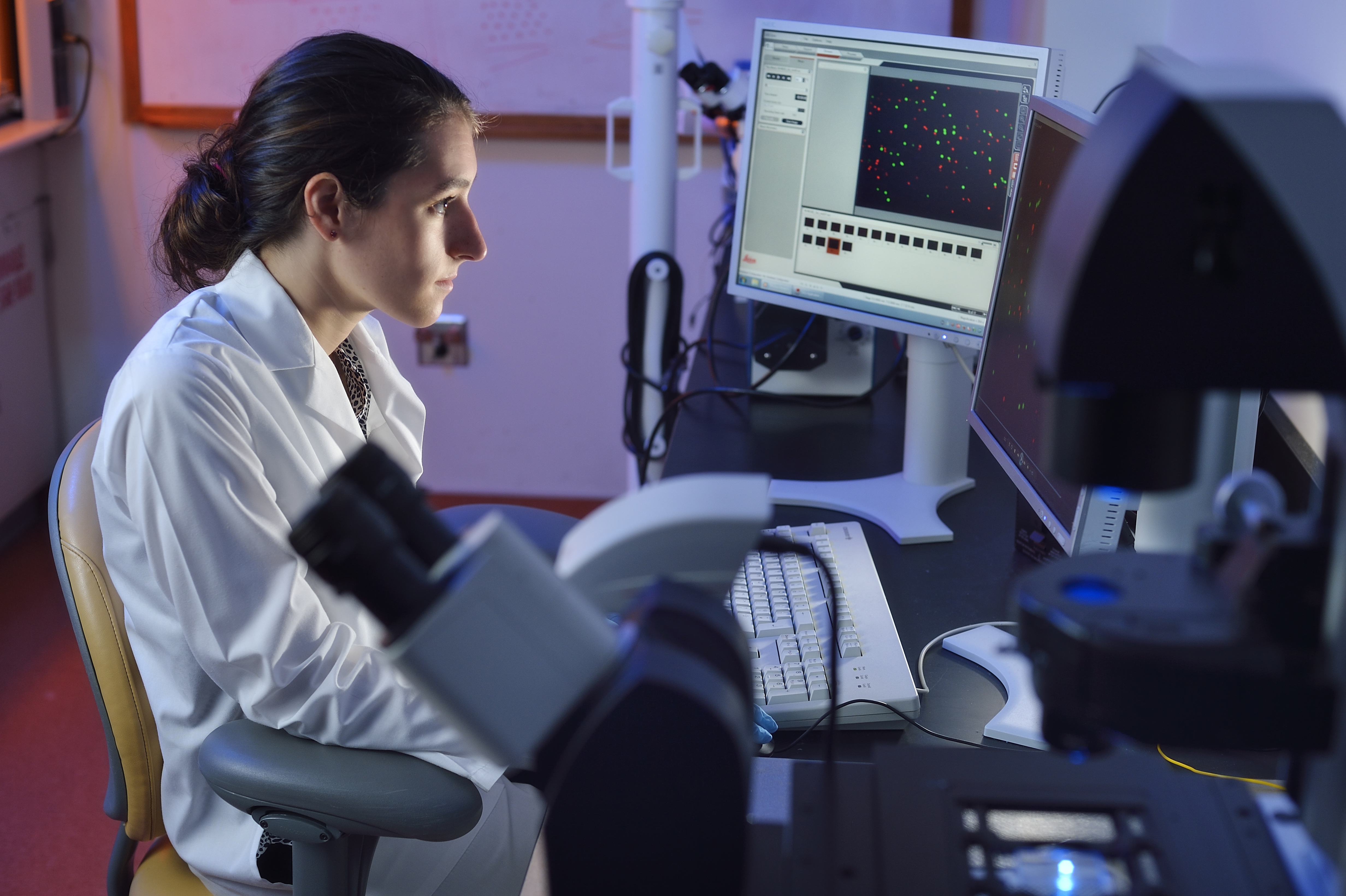Biomedical engineering student developed new Lyme disease test, now working in cancer detection

Temple Douglas of Lucketts, Virginia, is one of several doctoral students working in a Virginia Tech microfluidics lab helping discover new cancer detection methods. The task is well suited for her. While in high school, Douglas developed a new test for Lyme disease that uses urine.
Douglas works in the university’s BioTrans Interdisciplinary Graduate Education Program, part of the Virginia Tech Department of Biomedical Engineering and Mechanics.
Previously, she earned a bachelor’s in physics from Princeton in 2014, with certificates in materials science and engineering, and biophysics. Before she was at Princeton, though, Douglas already had cut her teeth in the biomedical field. Before her senior year at Thomas Jefferson High School for Science and Technology, Douglas was working at nearby George Mason University through its Aspiring Scientists Summer Internship Program.
That was in 2010. Several members of her family had recently contracted Lyme disease – an infectious bacterial disease transmitted via a tick bite – and Douglas became aware of limits in current blood-based tests that relies on the detection of antibodies, which can take weeks and still be unreliable.
“Antibodies form weeks after the tick bite, after which you have lost a window of time when antibiotics could have been started,” said Douglas. “Antibody reactions can be incomplete, often leading to false positives or false negatives. By detecting bacterial protein rather than the patient’s antibody response, it is possible to know earlier and more accurately whether someone has contracted Lyme disease.”
Douglas’ mentor at George Mason, Alessandra Luchini, had developed nanoparticles to use for the concentration and detection of low molecular weight proteins and biomarkers. Temple thought the same nanoparticles could detect Borrelia burgdorferi antigen fragments – that’s the bacteria that forms Lyme disease -- in urine, allowing for a more sensitive diagnostic test. George Mason allowed Temple to work on the method for her high school senior research project.
After graduation, before Princeton, Douglas continued working on the Lyme disease test in the summer and it went into clinical testing soon afterward. George Mason researchers carried the tests onward, and announced this past spring tests in early-stage Lyme disease patients had a near perfect detection rate.
The test is now commercially available and being used in some hospitals in Northern Virginia.
The timing is fortunate. Virginia and several other Southern states have reported increases in Lyme disease cases. The disease can be brutal, moving from early stage headaches and fatigue to achy joints, heart and central nervous system issues, and stroke, according to the Centers for Disease Control.
Temple now works with biomedical engineering Professor Rafael Davalos and postdoctoral associate Jaka Cemazar on microfluidics in Kelly Hall, where the Institute for Critical Technology and Applied Science is based. The goal is to detect tumor-initiating cells, also known as cancer stem cells, using a microfluidic platform to separate cancer stem cells or tumor-initiating cells that form new tumors, based on their electrical properties. According to the lab, this method could be used for personalized cancer treatment to develop drugs to target the most aggressive cells.




